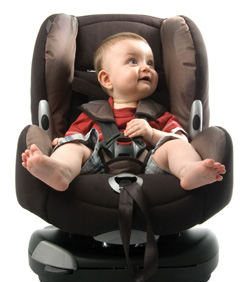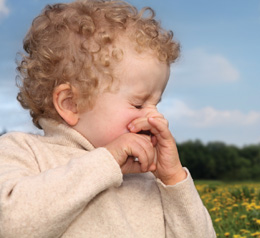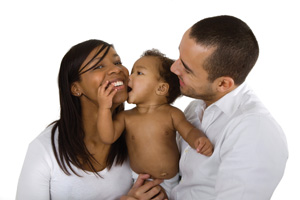 Car-seat face-off
Car-seat face-off
Don’t turn your toddlers around in their car seats just yet. We know you’d like to see them smile back when they catch your smile in that rearview mirror. Most of us do the car-seat about-face once our little ones reach the age of 1. But the American Academy of Pediatrics (AAP) recently decided it would like toddlers to stay in rear-facing car seats until age 2. “A rear-facing child safety seat does a better job of supporting the head, neck and spine of infants and toddlers in a crash, because it distributes the force of the collision over the entire body,” says the AAP’s Dennis Durbin, M.D., in a news release. As for older kids, it turns out they now need to stay in those booster seats until they’ve reached 4 feet 9 inches tall and are between 8 and 12 years old.
Destress your environment
Here’s one more reason to provide a stable, nurturing environment for your children in their early years: A study recently conducted through the Center on the Developing Child at Harvard University finds that major adversity can weaken a young child’s developing brain and permanently set the body’s stress response system on high alert. Kids need responsive relationships; a safe, supportive environment; and appropriate nutrition. “Positive early experiences provide a foundation for sturdy brain architecture and a broad range of skills and learning capacities,” the study says.
 Pay attention, firstborns
Pay attention, firstborns
Are you the sneezy sibling? Turns out there’s one more reason birth order matters: Firstborns are often the more allergic ones, according to a recent study presented at a San Francisco allergy conference. The Japanese study found that the number of kids suffering from hay fever, allergic eye inflammation and food allergies decreased based on birth order. That means the youngest siblings have the fewest allergies.
Radiation reassurance
Worried about radiation exposure from the nuclear reactor events in Japan? According to Seattle Children’s Hospital, you can relax. There’s a minimal risk to Washington state residents. Japan is thousands of miles from our state, and “if radioactivity from the reactors [in Japan] is released to the upper atmosphere, it would be thinned out by the winds before it could reach us,” the hospital reassures parents. For more information on radiation levels in Japan, check the U.S. Nuclear Regulatory Commission website.
 We’re crazy for Coontz!
We’re crazy for Coontz!
You won’t want to miss world-famous author Stephanie Coontz talk about love, intimacy and how to stay connected with your life, love and friends at “Healthy Parents, Happy Baby.” The free event, on Saturday, May 21 from 11 a.m. to 3 p.m. at Swedish Hospital, Cherry Hill campus in Seattle, is presented by ParentMap and Swedish. Register at parentmap.com/babymap-event.
Is Title X doomed?
The country’s Title X Family Planning program helps fund family planning programs for millions of low-income men and women. The measure does not subsidize abortion, but provides people with contraceptive, health and family services. Funding for Title X ($317 million) is now being threatened by House Republicans. Under a resolution, tax funds would no longer be sent to Planned Parenthood, which supports family planning and preventive care for more than 5 million women.
—Linda Morgan


